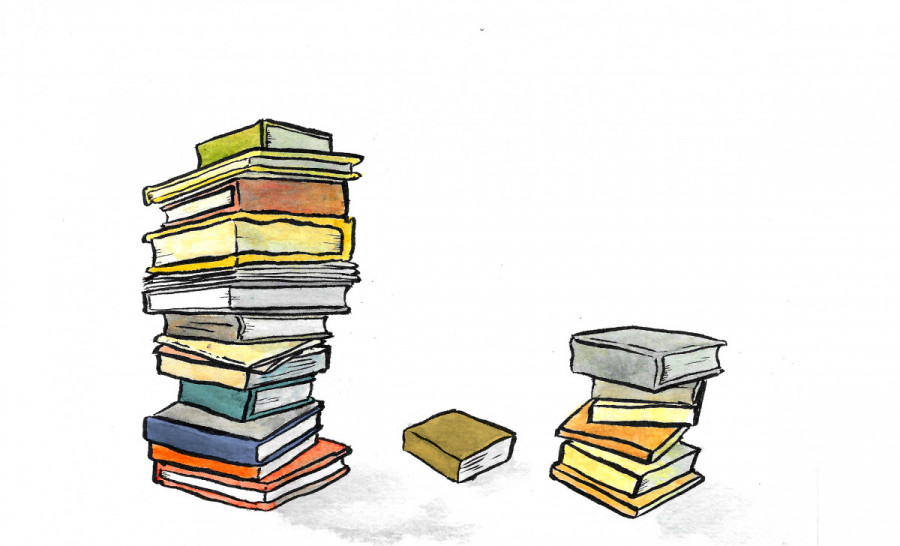Montreal Bookstores Are Struggling Through the COVID-19 Pandemic
Indies in Local Literary Community Seek Support, Explore Alternative Ways to Provide Their Services
The onslaught of COVID-19 is inevitably hitting small and local bookstores.
Since they’re not categorized as essential businesses, they have temporarily closed and are now seeking innovative ways to stay afloat.
Encore Books, The Word Bookstore, Drawn & Quarterly, and Argo Bookshop are all continuing to offer online services.
Both Drawn & Quarterly and Argo have been shipping out books and offering book delivery services.
Both bookstores have been greatly impacted by the pandemic. Argo’s sales went down 40 per cent in the month of March. The sales significantly improved in the month of April, but the store is unsure whether or not the current sale levels are sustainable.
Drawn & Quarterly’s business model mainly relies on customers coming into the store and browsing their curated books and graphic novels. Even though they’ve resorted to shipping, they’ve had to cover shipping costs for some customers—which has eroded some of their already thin margins.
The bookstore also usually relies on community programming, such as events, storytime readings, drawing clubs, and book clubs. They have now had to cancel, postpone, or delay more than 50 events this spring alone and have moved to online programming.
Even though the cancelling of events doesn’t represent the main financial loss for the store, as events are not usually in themselves profitable, it disadvantages communities, authors, and publishers who benefited from these programs.
Both Drawn & Quarterly and Argo—known as Montreal’s oldest independent English-language bookstore—continue to offer their book clubs online via Zoom.
Argo’s book club includes a readthrough of Japanese classics. They’re currently reading The Tale of Heike.
“The idea is to continue giving people things to do and to help maintain the community that’s normally around our store, since we can’t host events for the foreseeable future in the shop itself,” said Moti Lieberman, co-owner of Argo. The store also continues to offer their usual book discussions with authors and writing workshops but facilitates them online.
There has been a trend of larger bookstore chains, such as Indigo Books and Music, being forced to lay off employees due to COVID-19.
Lieberman said Argo isn’t laying off employees due to the pandemic, and anticipates their employees will seek the Canada Emergency Relief Benefit until they can come back to work.
The $2,000 taxable benefit it offers is a greater amount than what the store can offer its workers during its closure.
“If you don’t support these stores, you’re unfortunately not going to have them as a resource in the neighbourhood going forward, and they add a lot of value to the community.”
— Brendan King-Edwards
The Word Bookstore is not struggling as much in this department, as they are a family business of three with one other employee working with them. This employee has been receiving government benefits during the closure.
The Word started to notice a dramatic slowdown in foot traffic, due to COVID-19, before the store was even forced to close.
Now the store offers a delivery service in the form of book boxes. Customers can order boxes with either specific books they want to read or a “surprise box” filled with a random assortment of books.
Brendan King-Edwards, co-owner of The Word, said there has been a positive reaction to the book boxes on social media—people have been expressing a general excitement and appreciation for the initiative.
As a second-hand bookstore, it has been hit particularly hard as people now aren’t coming in to give them their old books to sell. However, they still have a backlog of old books that they will be taking out and advertising every week. Advertisements are also done through their online newsletter.
Even though King-Edwards doesn’t necessarily feel like The Word is in direct competition with larger book retailers such as Amazon, he still wants to underline the importance of customers choosing smaller bookstores over larger companies.
The Word promotes the “I Didn’t Buy It On Amazon” sticker on Instagram as a way to draw attention to how Amazon has been a direct threat to local and second-hand bookstores.
People associate book-buying with Amazon because it has taken a sizable piece of the market share away from independent stores.
“They’re predatory in terms of their competitive business practices. The ‘I Didn’t Buy It On Amazon’ sticker is a way of reminding people that it matters that they’re buying locally,” he said.
Luke Langille, manager of the Drawn & Quarterly, suggests one way to support these businesses is through word-of-mouth and that encouraging your friends to shop locally is a powerful act.
Sean Maddon, owner of Encore Books, stresses that a big form of support is the donation of books to the stores.
King-Edwards emphasizes the importance of this gesture. “If you don’t support these stores, you’re unfortunately not going to have them as a resource in the neighbourhood going forward, and they add a lot of value to the community,” he said.
Lieberman said Argo is offering gift cards that can be bought now and redeemed later, which would help keep them afloat for now.
“One of the ways to support us is to just let people know that we still exist and we’re still trying our best to help readers and the literary community here,” said Lieberman. “It’s a difficult time for us all, but many indies I know are trying their best to work out ways to stay open. Knowing that we’re doing that is a big thing, too.”







